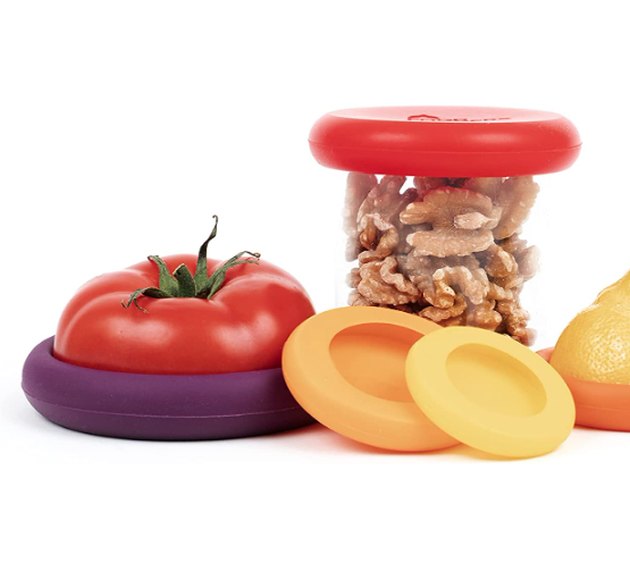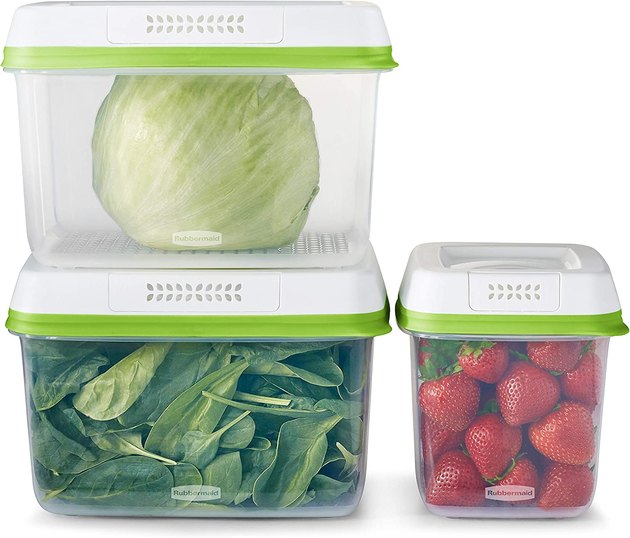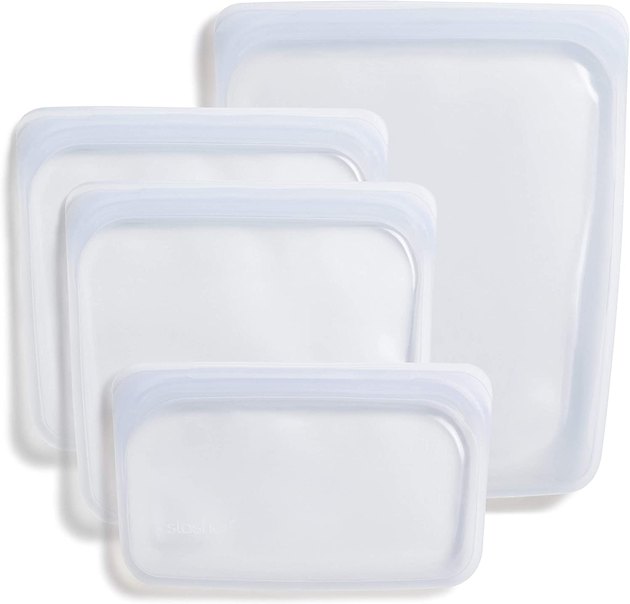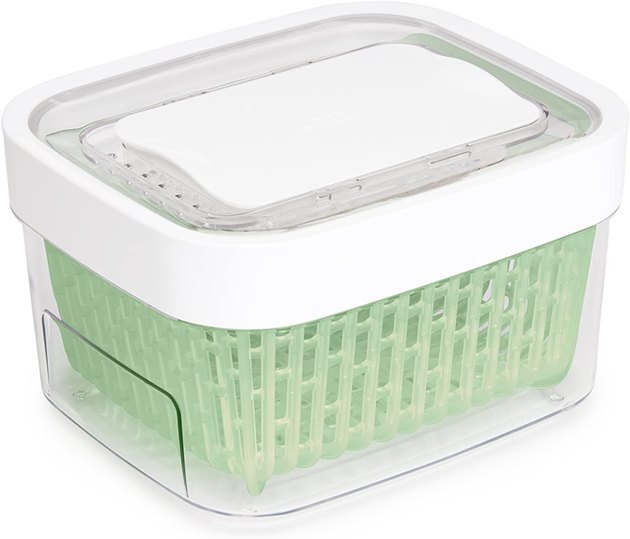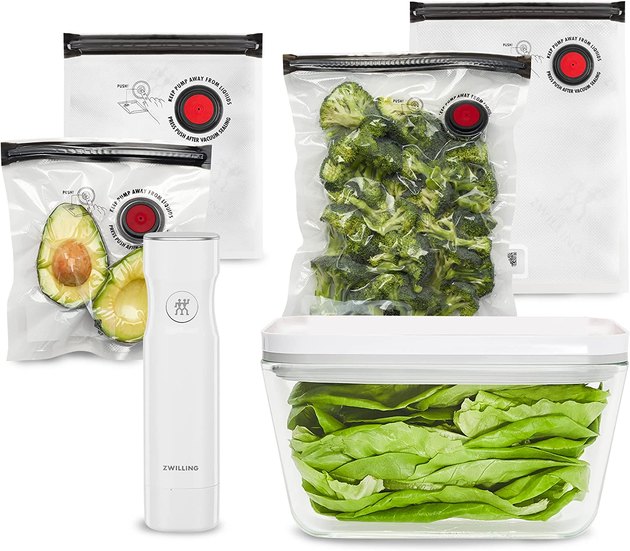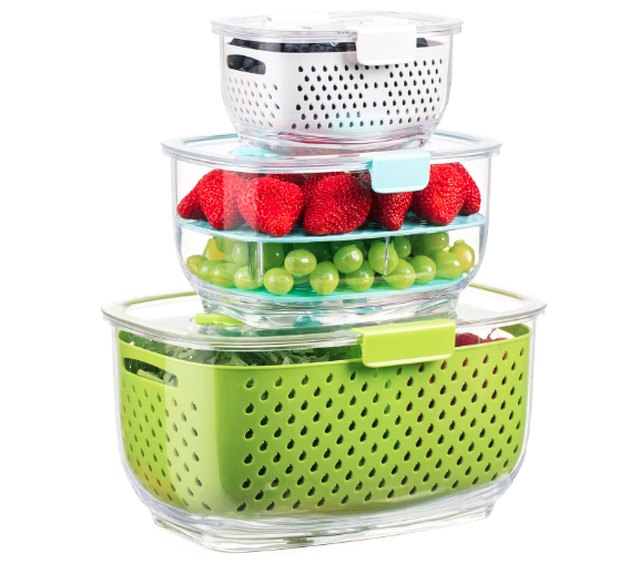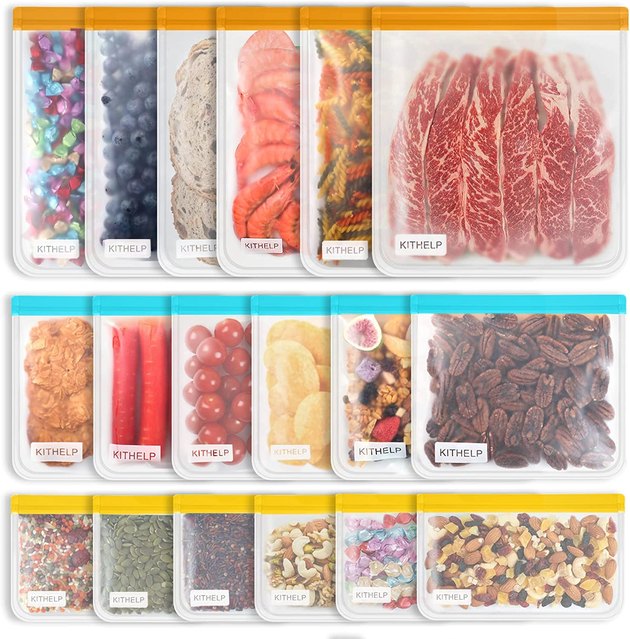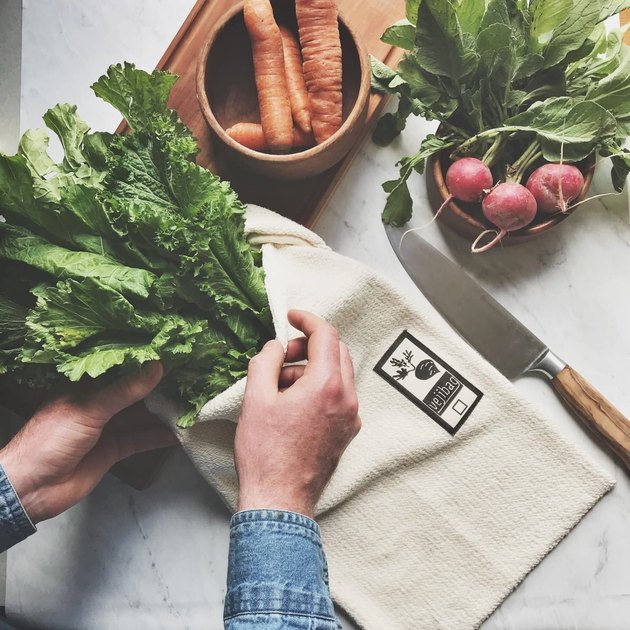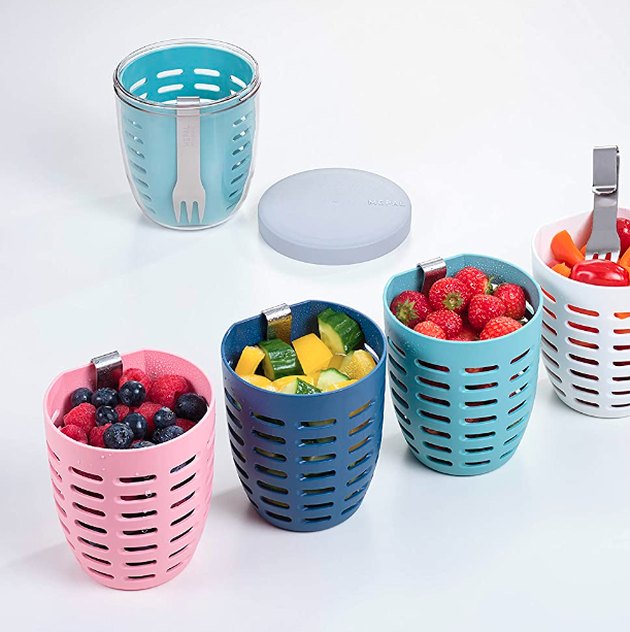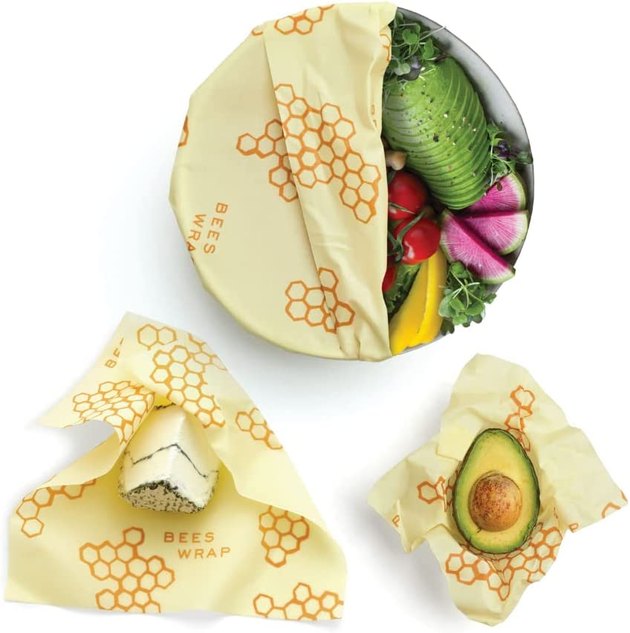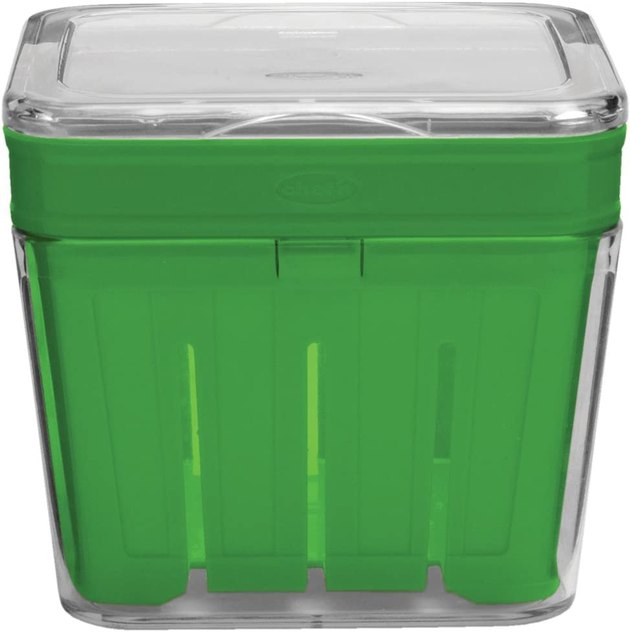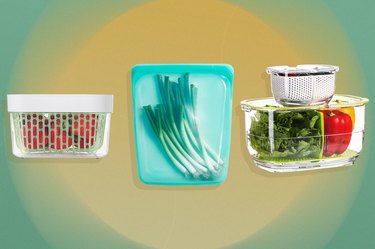
Very few of us have never tossed a head of wilted, old lettuce or some moldy berries. In fact, 30 to 40 percent of the food supply in the U.S. goes to waste, according to USDA estimates.
On that list is produce that spoils in the refrigerator or on the counter before we get to eat it. Composting is one way to curb food waste, but better than that is using what you have before it goes bad.
Video of the Day
Video of the Day
There are different reasons why fruits and vegetables spoil. Moisture degrades foods like lettuce and berries, as pooled water will break them down faster.
On the other hand, moisture keeps some foods fresh, such as hardy veggies like carrots and celery, per the Centers for Disease Control and Prevention (CDC). And then there's a class of fruits and veggies — such as mangoes and peaches — that give off ethylene gas, which speeds up the ripening of nearby produce, according to the CDC.
But here's a novel perspective that might cut down your food waste: "I think the process matters more than the vehicle," says Shannon Garcia, RD, LDN, of KISS in the Kitchen Blog.
"If we're buying produce and then washing, drying and prepping it before we stash it in the fridge — versus just putting it in the fridge in the same baggie you got at the point of purchase — that ready-to-eat version makes it easier to eat faster, and less likely to get lost and spoil in your drawer."
Keeping our groceries fresh can be simple with these produce savers.
Tip
Sometimes you don’t want another gadget in your kitchen. If that’s you, try this pro tip: “I keep certain herbs — namely cilantro, parsley and other leafier ones — fresh by storing them in a small bowl or jar of ice water in the fridge. It keeps the leaves super crisp and vibrant. It does not work, though, for basil or more tender herbs like dill and tarragon,” says Jamie Vespa, RD of the Dishing Out Health blog.
How We Chose
We spoke to registered dietitians for their top product recommendations and chose these produce savers based on the following criteria:
- Ease of use and versatility
- Efficacy (i.e. how well they maintain produce freshness)
- Sustainability
- Price
Learn more about how we cover products.
1. Food Huggers Reusable Silicone Food Savers
If you've ever wished for a better solution for that other half of your banana, or tomato or lemon, Food Huggers is the answer. Exactly as the name implies, they hug your leftovers and create an airtight seal to help them last longer.
2. Rubbermaid FreshWorks Produce Saver
Popular on Amazon, the FreshWorks Produce Saver has 4.5 stars and more than 7,400 reviews. Professional foodies have even road-tested these containers and given them the thumbs up. They come in various sizes and multipacks, depending on your needs.
3. Stasher Reusable Silicone Storage Bags
There are a few reasons so many dietitians rave about Stasher bags. Among them: They're leakproof, dishwasher-safe, eco-friendly and non-toxic. The half-gallon size is convenient for many food storage needs, but Stasher bags come in a variety of sizes, including sandwich and snack.
4. OXO Good Grips Green Saver
The produce-preserving element of OXO's GreenSaver containers is an activated carbon filter that traps and absorbs the ethylene gas that ripens some types of fruits and vegetables. You can shop multiple sizes, including one for your herbs.
5. Zwilling Fresh and Save Vacuum Sealer Set
This starter set comes with BPA-free and reusable plastic bags (four total) as well as a hand vacuum to suction out extra air in your food storage containers. It also comes with two glass containers and matching vacuum lids.
6. Luxear Fresh Produce Storage Containers
Visually similar to the Rubbermaid FreshWorks containers, Luxear's BPA-free containers get unique points for being partitioned. Think: Berries in a colander on one side and fresh lettuce on the other. You have the option to buy a two-piece or three-piece set.
7. KITHELP Reusable Storage Bags
BPA-free, leakproof, washable and recyclable in gallon, lunch and snack-sized bags, KITHELP's reusable bags are the cheaper cousins to the Stasher bags. This starter pack is a great way to dip your toe into reusable baggie-style storage.
8. Vejibag Fresh Vegetable Storage Bags
Sturdier veggies like carrots, beets and broccoli, as well as some herbs and leafy greens, can be stored in these North Carolina-made terry bags. Pack your produce into the bags after you've dampened them with water and they should keep for a week or more. This bag could also double as great storage for a fresh loaf of bread.
9. Mepal Veggie and Fruit Travel Cup
For an on-the-go lifestyle, these cups are functional. Rinse your berries or freshly cut veggies in the colander insert and drop them into the cup — no paper towel to dry your delicate produce required. Just don't forget that cute, practical to-go mini fork before you hit the road.
10. Bee's Wrap Reusable Food Wraps
Dubbed the "natural alternative to plastic wrap," this reusable food wrap is good for a year. Simply wash it with water and soap between uses. It's ideal for sturdy veggies and equally helpful to cover leftover dishes, wrap your favorite cheese or even a loaf of bread.
11. Chef’n Vibe Reusable Berry Basket
A more recognizable version of the Mepal product, this BPA-free berry pint basket comes with a clear outer container that's sealable. It's dishwasher-safe, too.
